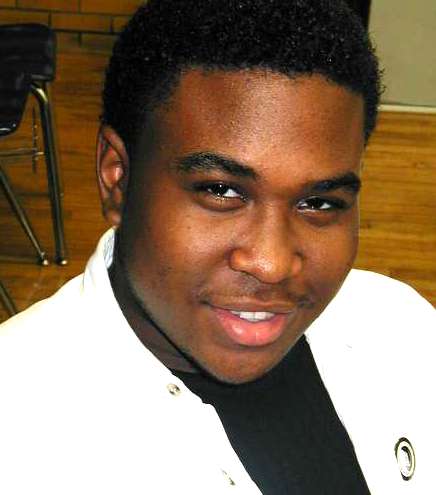|
NEW YEARS RESOLUTIONS
CNN Staff
 January is the time when people make New Year's resolutions. No one knows why exactly they wait all year, but it's probably because it's like a new beginning. People promise to do things --or not do things-- they feel guilty about. Like smoking or being fat. Mainly older people make resolutions, but a lot of kids do, too. Quitting smoking is a good thing. There's really nothing wrong with being fat, though, except it's not healthy. So that's when they make promises to their mothers and boyfriends or whoever that they're going to stop eating all that junk food and being a "couch potato". January is the time when people make New Year's resolutions. No one knows why exactly they wait all year, but it's probably because it's like a new beginning. People promise to do things --or not do things-- they feel guilty about. Like smoking or being fat. Mainly older people make resolutions, but a lot of kids do, too. Quitting smoking is a good thing. There's really nothing wrong with being fat, though, except it's not healthy. So that's when they make promises to their mothers and boyfriends or whoever that they're going to stop eating all that junk food and being a "couch potato".
The question is how long do resolutions last? A lot of times it only lasts a few days, but even though that's normally the case, everyone still says, "Ok, but this time is going to be different."
Yeah, right.
Another thing wrong with this whole idea of resolutions is that we make promises that are almost impossible to keep. Like if you're spending too much time with your boyfriend or regular friends and you make a resolution and say, "I'm only going to hang out with my boyfriend once a month." That's doomed to fail so don't say you'll do the impossible. Or like saying you're only going to talk on the phone for 15 minutes every night. C'mon. Get real.
So my advice is to just make a resolution that kind of easy to keep --like, I'm going to do my homework every night. That's not hard to keep, even though it sounds like it is. Homework is something that we should be doing anyway. So just be careful what you promise yourself. Good luck.
RETURN TO INDEX
MARTIN LUTHER KING
James Crooms
David Espaillat
Michael Hill
Shawn Watt
 Dr. Martin Luther King, Jr. was born in 1929 in Atlanta, Georgia. He went to some of the best schools and skipped the 9th and 12th grades. He already received his college degree at the age of 15 years old. He fought for freedom for the non-whites and received more than one hundred awards in his short life, including "Man of the Year" and the Nobel Peace Prize. With his great speeches, he changed America forever. Dr. Martin Luther King, Jr. was born in 1929 in Atlanta, Georgia. He went to some of the best schools and skipped the 9th and 12th grades. He already received his college degree at the age of 15 years old. He fought for freedom for the non-whites and received more than one hundred awards in his short life, including "Man of the Year" and the Nobel Peace Prize. With his great speeches, he changed America forever.
He taught people of color to "fight" for their rights through non-violence. In those days we had to ride in the back of the bus and we had no rights whatsoever. Blacks and whites went to different schools and ate at different places. He fought to change all that. We needed somebody to stand up for us because we would no longer put up with it. What a better way than with non-violent protesting. It was a great way to bring light on the struggle that blacks were going through in the south.
Dr. King was arrested 34 times for speaking at civil rights movements. He was most famous for his "I Had A Dream" speech, which stated that blacks and whites will one day go to school together and play the same sports together. Dr. King was shot and killed by James Earl Ray.
RETURN TO INDEX
A DOLL'S HOUSE
A REVIEW
by DaVAUGHN BRYAN
Because last month's issue of CNN was a special holiday issue, we postponed the following review of A Doll's House until now. The performance at the Lehman College Lovinger Theatre was arranged by Professors David Ganz and David Hyman for the Columbus College Now 10th grade classes.
 Think of A Doll's House and these words and phrases come to mind: brilliant, a work of art, the public raves for more. And these are only to mention a few. Think of A Doll's House and these words and phrases come to mind: brilliant, a work of art, the public raves for more. And these are only to mention a few.
This play provides the perfect occasion for even grown men to play with "doll houses". Written to illustrate the sexual segregation of the 1870's, this play portrays the growth of women from second class citizens to male equals in all fields. The play is written from the perspective of Ms. Nora Helmer, a woman of infinite compassion for both her husband and father, and who has devoted most of her life to their health and happiness. However she became consumed by these tasks and never voiced her own opinions on matters of "male" importance such as stocks or investing "like a good wife should".
To save her husband's life, she barks the law, not thinking of the reproductions of her actions but only the well being of Torald (her husband). In the eyes of the audience, this seems to be a noble deed! However upon Torald's discovery of her actions, a domestic dispute ensued. Within his anger Torald does the unthinkable and strikes his wife to the ground. At that very moment he forever lost her love and any compassion the spectators may have had for him.
One could feel the disappointment Nora must have felt as her husband yelled and screamed at her. It takes a good or great writer to steer such emotion within those watching a presentation. The actions could not have done a better job, they made you apart of the play, as if you were there, in that time period going though the same situation.
I would recommend this play to anyone, but specifically women of all ages --especially for the fact that the foundation of the play seems to be the empowerment of women. Out of a possible 10 points for play content, I give this play a 9. However for it's emotional content a 10.5.
RETURN TO INDEX
HURT AND PAIN
by
RAMON MARTINEZ

The following poem was written as a response to a Social Studies reading assignment of, �The Rape of Nanking�-the Forgotten Holocaust of World War II� by Iris Chang. It is an account of the treatment of Chinese civilians by Japanese soldiers during World War II. Ramon, a 10th grader in the College Now program, began his thesis by indicating that the nationalism of Japan had negative effects on global society.
Nationalism in Japan has been effective
Extremely negative, thatz my perspective.
So stay attentive
Towards people who can have such animosity
Commit such atrocities
Only God can see.
Every day I think in my mind
Who on earth can commit such a crime
Time after time, after time.
Why was there such a riot?
Till this day they deny it.
If you don't believe this is the truth
We have proof ready to bring you and
you through the truth.
On the morning of the thirteenth, things
Happened that would never have seemed.
Who can uphold, the brutally slaughtered
Souls and be so cold.
Why does it have to come to rape,
Why does a person
Like John Rabe
Need to save the day?
Japanese say facts are false.
But this is the rape, of Nanjing
The forgotten
Holocaust.
There seems to be confusion, women forced into
Military prostitution, yet the facts are true
Japansese still deny it like it was an illusion.
Innocent men blindfolded propped on two sticks
Used as bayonet practice while the Japanese get their
Kicks.
I feel the Chinese hurt and pain
Knowing that the ones to blame
Are hiding in lies ashamed.
The past will not be forgotten
The future is long near.
Do not be in fear.
God loves all of us and He is right here.
Rest in peace for the souls brutally deceased.
�No one owns Land
Thatz what we need to understand.
It is not to be claimed, but shared,
Yet there will be too much hurt and pain.�
RETURN TO INDEX
MODEM INVENTOR DIES
by CNN STAFF
Many people have contributed to the computer industry, and this past month a very prominent person in this technology field died. His name is Richard H. Bolt, who was a physics professor who was responsible for designing the first computer modem in 1963. This invention allowed computers to communicate with each other and led to ARPANET, which we know now as the Internet.
ARPANET was an Army project originally designed to allow all branches and phases of the military to communicate in emergencies. This later evolved into what we now call the Internet.
Mr. Bolt was a professor at MIT with an interest in acoustics. He worked on such projects as doing an audio analysis of the JFK assassination, the "18.5 minute gap" in Nixon's White House tapes, and improving the sound in concert halls. Later he started his own company called BBN, which included one of his former students, and it was this group of men who chose the "@" sign for e-mail addresses. Mr. Bolt died on January 13, but his death was not announced by his family until January 22. He was 90.
RETURN TO INDEX
RETURN TO INDEX
PREVIOUS ISSUE
PHOTO GALLERIES
|
|

 January is the time when people make New Year's resolutions. No one knows why exactly they wait all year, but it's probably because it's like a new beginning. People promise to do things --or not do things-- they feel guilty about. Like smoking or being fat. Mainly older people make resolutions, but a lot of kids do, too. Quitting smoking is a good thing. There's really nothing wrong with being fat, though, except it's not healthy. So that's when they make promises to their mothers and boyfriends or whoever that they're going to stop eating all that junk food and being a "couch potato".
January is the time when people make New Year's resolutions. No one knows why exactly they wait all year, but it's probably because it's like a new beginning. People promise to do things --or not do things-- they feel guilty about. Like smoking or being fat. Mainly older people make resolutions, but a lot of kids do, too. Quitting smoking is a good thing. There's really nothing wrong with being fat, though, except it's not healthy. So that's when they make promises to their mothers and boyfriends or whoever that they're going to stop eating all that junk food and being a "couch potato".  Dr. Martin Luther King, Jr. was born in 1929 in Atlanta, Georgia. He went to some of the best schools and skipped the 9th and 12th grades. He already received his college degree at the age of 15 years old. He fought for freedom for the non-whites and received more than one hundred awards in his short life, including "Man of the Year" and the Nobel Peace Prize. With his great speeches, he changed America forever.
Dr. Martin Luther King, Jr. was born in 1929 in Atlanta, Georgia. He went to some of the best schools and skipped the 9th and 12th grades. He already received his college degree at the age of 15 years old. He fought for freedom for the non-whites and received more than one hundred awards in his short life, including "Man of the Year" and the Nobel Peace Prize. With his great speeches, he changed America forever. Think of A Doll's House and these words and phrases come to mind: brilliant, a work of art, the public raves for more. And these are only to mention a few.
Think of A Doll's House and these words and phrases come to mind: brilliant, a work of art, the public raves for more. And these are only to mention a few. 